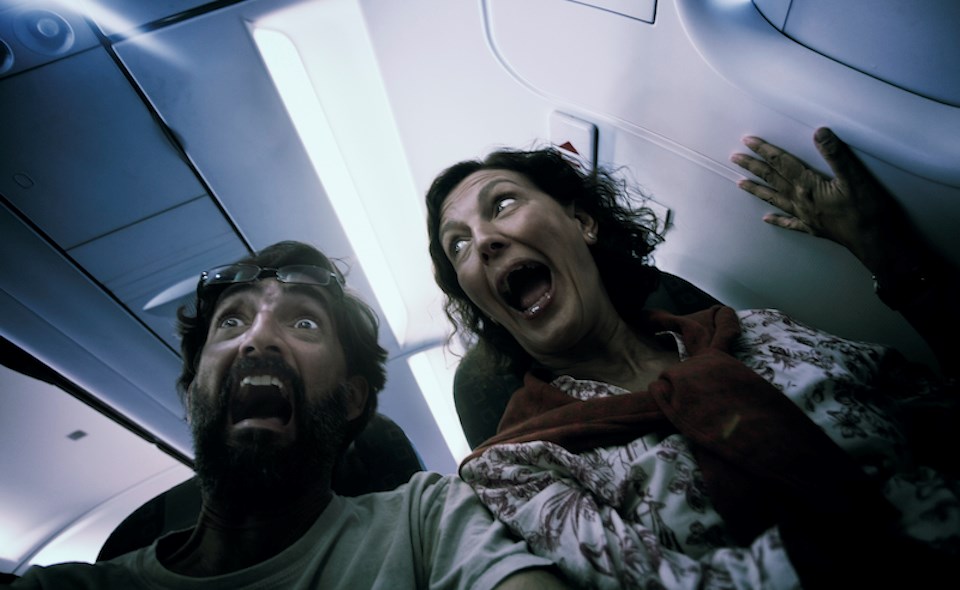One person was killed and several others injured in recent turbulence on a Singapore Airlines plane, but experts say the risk of serious injury during the flight is low.
The airline said on Tuesday, May 22, that a flight from London's Heathrow Airport to Singapore encountered severe turbulence over the Indian Ocean and descended to an altitude of 6,000 feet in about three minutes.
A 73-year-old British man has died.The cause of death has not been confirmed, but it is believed he may have suffered a heart attack.
After the plane landed in Bangkok, Thailand, emergency services rushed dozens of seriously injured passengers to hospitals.
But experts at Vancouver's emergency medical services say serious injuries on commercial aircraft are extremely rare, provided the passenger is in good health.
Flying can aggravate existing medical conditions
Anthony Fong, a clinical assistant professor at the University of British Columbia (UBC), told VIA that some people may experience medical emergencies on planes for reasons unrelated to turbulence.
“Pre-existing medical conditions may be exacerbated,” he noted, adding that anyone with undiagnosed chest pain or other health concerns should consult a doctor before booking a ticket. Ta.
People with a cold or other virus can also feel sick during the flight because the cabin air pressure can cause ear pain.
Fong added that the process of flying can be stressful. Passengers may be walking more than usual and carrying heavier luggage. You will also have to navigate a crowded airport and pass through security checkpoints.
“The first thing I think is that flying a typical commercial jet is safe,” he says. “However, you should always wear your seat belt, even when the seat belt sign is not on. Please put your luggage away when it is not in use.”
Fatal accidents in flight are extremely rare.
The International Air Transport Association reports that there will be five fatal accidents out of 32.2 million flights in 2022. A fatality risk of 0.11 means that on average, a person would need to “fly every day for 25,214 years” to experience a 100% fatal accident.
While deaths and serious injuries from turbulence are rare, falling or hitting your head while on an airplane can be painful. If you suffer blunt trauma to the head or if any part of your body is struck by an object, you should seek medical attention. You should also seek medical attention if you experience pain, nausea, vomiting, or dizziness after the flight.
Passengers may not feel the effects of turbulence until several hours later, Fong said.
“I can draw parallels with rear-end collisions and rear-end collisions. [You may] I don't feel anything right after. Your body will tense up and you won't feel any strain at first, but you may feel pain later. ”
Does travel insurance cover turbulence during a flight?
Will McAleer, executive director of the Canadian Travel Health Insurance Association, said travellers will need more than just medical insurance when travelling by air.
If a passenger experiences a medical emergency during the flight, the medical plan will cover hospital fees and other costs associated with transport to the hospital. However, it does not cover the cost of new flights, hotel accommodations, or other pre-booked activities. If your connecting flight is delayed due to turbulence, you may need to book another option.
“Travellers may miss all or part of their planned trip. Will your insurance protect you if you miss part of your cruise?” [They need] We will cover trip cancellations and interruptions in case of emergencies,” he said.
“Accidents happen, and it can happen on a plane… it can happen [also] It happens when you're jet lagged and have to drive on the wrong side of the road.”
Travelers may also need to stay in their destination until they are healthy enough to travel. Comprehensive travel medical insurance covers the cost of your stay at your destination and the cost of returning home after you are discharged from the hospital. Some plans even include the cost of flying your loved one over while you receive treatment.
Singapore Airlines will likely treat passengers injured on recent flights, but travellers need to ensure they are not left stranded at the 11th hour, even if airlines or other travel providers are to blame, Mr Makaria said.
BC residents who fly across Canada and do not have travel insurance face high medical costs when receiving emergency medical care in another province, including ground and air ambulances and medications issued after discharge. may be charged.
When choosing an insurance company, travelers should be honest about their health status and determine whether pre-existing conditions will be covered.
“So when you answer a medical questionnaire, be accurate,” McAleer says.
With files from The Associated Press



